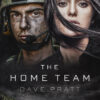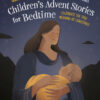Hello from children’s author Crystal Bowman! I love the challenge of writing for children, and I love teaching other writers the craft of writing for children. In previous blogs I’ve talked about the many different genres of children’s literature as well as sharing tips on writing for children. Today I want to give you an inside look into how I got my most recent book published.
Tag: writing craft
This is our archive pageTen More Tips on Writing for Children
, by adminHello from Crystal Bowman! In my twenty-plus years of writing for children, I have met many writers who want to write for children because they think it would be fun. Yes–it is fun, but far from easy. It’s a craft that needs to be mastered just like anything else. The more you know about writing for children, the harder it gets. It is very difficult to break into publishing with a children’s book, so the more you know, the more you increase your chances. In January I posted seven tips on writing for children. Today I am offering ten more….
The Name Game
, by adminHello from Crystal Bowman! I have been writing books for children for over 20 years and have learned a few things along the way. Writing for children is much harder than most people realize. The challenge is to write an engaging, creative story using limited vocabulary and word count. Another thing to consider is naming your characters. The characters in a book may be animals or humans, but either way, they need names—and choosing the right name is important!
Seven Tips on Writing for Children
, by adminHello from Crystal Bowman! I have been writing for children for over 20 years. Before writing my first book, I spent 5 years as a preschool teacher and 12 years as a full-time mom. From my twenties to my forties, young children were part of my daily life. I am now in another decade with grandchildren, so I still have little ones in my world. When I teach at writers’ conferences, or when someone wants advice on writing for children, I always remind them that they have to know kids in order to write for them. They need to understand…
Death by Publishing Contract!
, by adminHi, Dave Fessenden here, to talk about writing issues, and today I’d like to discuss the issue of legalese, specifically in publishing contracts. I recently had to explain to a friend that the phrase “place of physical execution” means the physical location where the contract gets signed, and does not place the author’s life in danger! (Well, she knew that it couldn’t mean that, but it never hurts to ask!)
“Just the Facts, Ma’am”
, by adminHi, Dave Fessenden here, to tell you what I’ve learned about writing from Detective Joe Friday, on the old TV show Dragnet. Sergeant Friday was a no-nonsense kind of guy. He didn’t let crime victims go on and on about their feelings; his motto was “Just the facts, Ma’am.” And that’s the attitude you need to take when you want to put more description in your writing.
What Kind of Children’s Book — Part 2
, by adminIn my last post titled What Kind of Children’s Book? I explained that it’s important for writers of children’s literature to know what subgenre they want to write for. When presenting a proposal to an agent or editor, writers need to know where their book will fit in the market. I discussed three of the primary subgenres: boardbook, preschool picture book, and the standard 32-page picture book.
Sometimes It’s How You Frame It
, by adminGreetings and Happy New Year! Maureen Pratt here with my monthly CAN blog on the craft of writing. Today, I'm going to offer one technique to help you find the right angle and tone for your story. Sometimes, fine-tuning these so that your intent is clear and your storytelling is compelling isn't a matter of vocabulary or sentence structure, or even pacing or flow. Sometimes, it's how you frame your story that gives it its best final form. Recently, I took two lovely watercolors to a frame shop. I'd purchased them awhile ago, and never liked the plain frames they'd…
Themes: Give Your Fiction Purpose
, by adminGood morning and a joyful November to you from Gail Gaymer Martin at www.gailgaymermartin.com Time has flown and here I am again to share with you some thoughts on making our novels even more meaningful so readers remember than weeks and months to follow. Readers remember some novels long after they’ve read them, and one of reasons is the theme or the message that the story delivers to the reader. When working on your novel, ask yourself these questions: What will happen, and why does it matter? What will the characters learn and how will they grow? How will this…
Tips from the Pros: Lynda T. Young
, by adminGreetings from sunny–and short–springtime in central Florida! Marti Pieper here, lifting my head from my current manuscript long enough to share an insightful interview with author Lynda T. Young. Lynda not only has an interesting journey to publication but some unusual elements to her marketing strategy as well. Welcome, Lynda! Let's forge ahead with the interview. How did you get into writing? How many books do you have published? What are a few of your latest titles? I co-founded a ministry, Kindred Spirits International, in 1999 and we sent out a newsletter. My articles mainly dealt with children’s hospitals and…
Recent Posts
 Book Review: The Home Team by Dave PrattNovember 15, 2025
Book Review: The Home Team by Dave PrattNovember 15, 2025- Fascinating Friday Feature – One Fruit of the SpiritNovember 14, 2025
 Book Review: Children’s Advent Stories for Bedtime by Julie & David LavenderNovember 8, 2025
Book Review: Children’s Advent Stories for Bedtime by Julie & David LavenderNovember 8, 2025
Recent Posts
- Book Review: The Home Team by Dave Pratt
- Fascinating Friday Feature – One Fruit of the Spirit
- Book Review: Children’s Advent Stories for Bedtime by Julie & David Lavender
- Book Review: Flourish: Grace-Centered Practices to Protect and Grow a Fruitful Life in Christ by Ava Pennington
- Fascinating Friday Feature – The Beautiful Mess of My Writing Life
Archives
- November 2025
- September 2025
- August 2025
- July 2025
- June 2025
- May 2025
- April 2025
- March 2025
- February 2025
- January 2025
- December 2024
- November 2024
- October 2024
- September 2024
- August 2024
- July 2024
- June 2024
- May 2024
- April 2024
- March 2024
- February 2024
- January 2024
- December 2023
- November 2023
- October 2023
- September 2023
- August 2023
- July 2023
- June 2023
- May 2023
- April 2023
- March 2023
- February 2023
- January 2023
- December 2022
- November 2022
- October 2022
- September 2022
- August 2022
- July 2022
- June 2022
- May 2022
- March 2022
- February 2022
- January 2022
- December 2021
- November 2021
- October 2021
- September 2021
- August 2021
- July 2021
- June 2021
- May 2021
- April 2021
- March 2021
- February 2021
- January 2021
- December 2020
- November 2020
- October 2020
- September 2020
- August 2020
- July 2020
- June 2020
- May 2020
- April 2020
- March 2020
- February 2020
- January 2020
- December 2019
- November 2019
- October 2019
- September 2019
- August 2019
- July 2019
- June 2019
- May 2019
- April 2019
- March 2019
- February 2019
- January 2019
- December 2018
- November 2018
- October 2018
- September 2018
- August 2018
- July 2018
- June 2018
- May 2018
- April 2018
- March 2018
- February 2018
- January 2018
- December 2017
- November 2017
- October 2017
- September 2017
- August 2017
- July 2017
- June 2017
- May 2017
- April 2017
- March 2017
- February 2017
- January 2017
- December 2016
- November 2016
- October 2016
- September 2016
- August 2016
- July 2016
- June 2016
- May 2016
- April 2016
- March 2016
- February 2016
- January 2016
- December 2015
- November 2015
- October 2015
- September 2015
- August 2015
- July 2015
- June 2015
- May 2015
- April 2015
- March 2015
- February 2015
- January 2015
- December 2014
- November 2014
- October 2014
- September 2014
- August 2014
- July 2014
- June 2014
- May 2014
- April 2014
- March 2014
- February 2014
- January 2014
- December 2013
- November 2013
- October 2013
- September 2013
- August 2013
- July 2013
- June 2013
- May 2013
- April 2013
- March 2013
- February 2013
- January 2013
- December 2012
- November 2012
- October 2012
- September 2012
- August 2012
- July 2012
- June 2012
- May 2012
- April 2012
- March 2012
- February 2012
- January 2012
- December 2011
- November 2011
- October 2011
- September 2011
- August 2011
- July 2011
- June 2011
- May 2011
- April 2011
- March 2011
- February 2011
- January 2011
- December 2010
- November 2010
- October 2010
- September 2010
- August 2010
- July 2010
- June 2010
- May 2010
- April 2010
- March 2010
- February 2010
- January 2010
- December 2009
- November 2009
- October 2009
- September 2009
- August 2009


